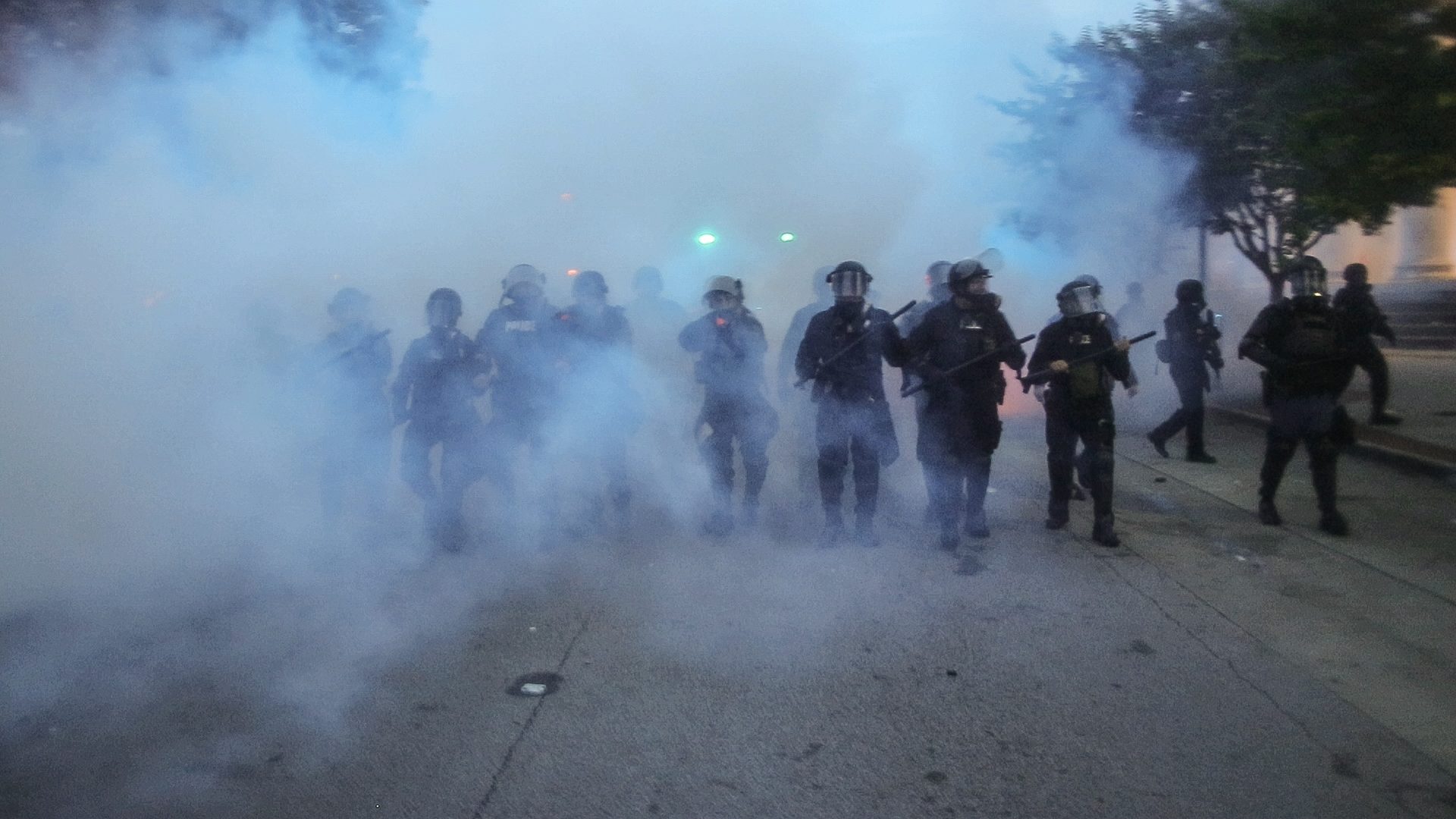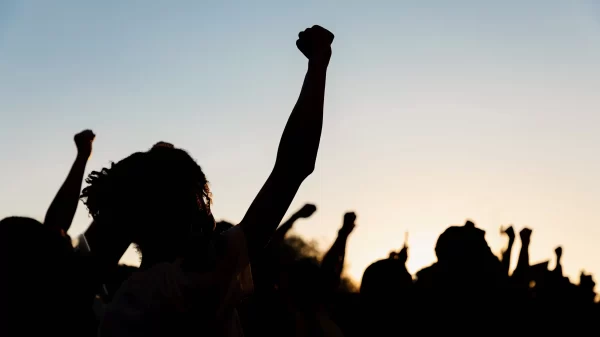People participating in protests in Alabama could soon find themselves detained for 24 hours if law enforcement finds the protest creates immediate danger of damage to property or injury to persons.
The House Judiciary Committee gave the bill a favorable report on Wednesday after a round of discussion and debate.
Rep. Allen Treadaway, R-Morris, referenced rioting in Birmingham as an example of why the changes are needed.
“Folks are coming in and hijacking what starts to be a peaceful protest,” Treadaway said. “It’s well-financed and well-organized.”
Treadaway recounted seeing the rioting in Birmingham up close, stating that an individual had a bag full of cash in the “back of the jail” ready to bond out any rioters.
“He didn’t even know who he wanted to bond out,” Treadaway said. “It shows it was a bigger concerted effort.”
Due to the existing law, Treadaway said law enforcement had to allow the person to bond out whoever he wanted to, allowing people just arrested for rioting to return to the streets to do more damage.
That’s why, Treadaway said, it’s important to ensure people charged with rioting or assaulting a police officer are held for 24 hours.
“It gives public safety time to put these fires out,” Treadaway said.
Democrats on the committee said the bill is “better” than it was last year, but “not great.”
“What’s the difference between a riot and legitimate political discourse?” asked Rep. Chris England, D-Tuscaloosa. The question is a clear reference to the Republican National Committee branding the Jan. 6 Capitol insurrection as “legitimate political discourse.”
“It seems to me the difference is who’s participating in it,” England said.
Several questions were posed as to how law enforcement would determine between a peaceful protest and immediate danger to people and property.
“There’s peaceful protest and then there’s setting buildings on fire,” Treadaway said.
The ACLU of Alabama has compared the bill to a Florida law that has now been ruled unconstitutional and said it is prepared to request a similar injunction against this bill if it passes.
The Code of Alabama currently defines a riot as occurring when “five or more other persons, wrongfully engages in tumultuous and violent conduct and thereby intentionally or recklessly causes or creates a grave risk of public terror or alarm.”
HB2 would change the definition of a riot occurring to the “assemblage of five or more persons resulting in conduct which creates an immediate danger of damage to property or injury to persons.”
The bill deems a person participating in a riot “if, after receiving an order to disperse by a law enforcement officer or when in violation of a curfew, the person intentionally participates in a riot.”
In his decision overturning the Florida law, U.S. District Judge Mark Walker wrote that Florida’s definition of a riot did not make clear whether a person “merely avoid sharing a common intent to assist others in violent and disorderly conduct” or needed to “avoid participating in any public event where such violent and disorderly conduct could occur.” As such, he said, “If this court does not enjoin the statute’s enforcement, the lawless actions of a few rogue individuals could effectively criminalize the protected speech of hundreds, if not thousands, of law-abiding Floridians.”
“HB 2 is similarly vague to the extent of disorderly conduct an individual must knowingly engage in to be considered for arrest and prosecution,” the ACLU of Alabama said in a statement.
The bill was given a favorable report and advances to the full House for consideration.



















































